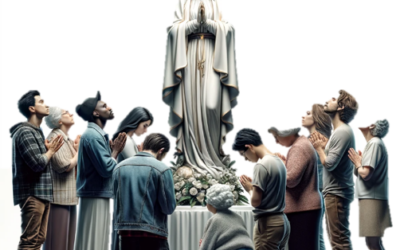The Watchtower organization claims for itself the title of “faithful and discreet slave” based on their translation of Jesus’ words in Matthew 24:
“Who really is the faithful and discreet slave whom his master appointed over his domestics, to give them their food at the proper time? Happy is that slave if his master on coming finds him doing so! Truly I say to you, he will appoint him over all his belongings,” (Matthew 24:45-47, New World Translation).
Jehovah’s Witnesses insist that this passage is a prophecy about their governing body (the Watchtower organization) rising in the last days to “feed” God’s people through Watchtower publications. For example, they write:
“Who, then, is the faithful and discreet slave? In keeping with Jesus’ pattern of feeding many through the hands of a few, that slave is made up of a small group of anointed brothers who are directly involved in preparing and dispensing spiritual food during Christ’s presence. Throughout the last days, the anointed brothers who make up the faithful slave have served together at headquarters. In recent decades, that slave has been closely identified with the Governing Body of Jehovah’s Witnesses. Note, however, that the word “slave” in Jesus’ illustration is singular, indicating that this is a composite slave. The decisions of the Governing Body are thus made collectively.”1
This is no small matter, as they also say:
“Jesus said that he would use ‘the faithful and discreet slave’ to give ‘food at the proper time’ to his domestics. (Read Matthew 24:45-47.) That faithful slave is the channel through which Jesus is feeding his true followers in this time of the end. It is vital that we recognize the faithful slave. Our spiritual health and our relationship with God depend on this channel.”2
Thus, they not only claim that the Watchtower Organization is the one and the only channel by which one can have a relationship with God, they actually insist that Jesus specifically prophesied that this would be so. They have, however, completely missed the point of Jesus’ warning. It is a warning to all believers to be on guard against worldly temptation and to live in anticipation of the coming of Christ. This is clear even in the Jehovah’s Witnesses’ own translation of the Bible. The chapter begins:
“While he was sitting on the Mount of Olives, the disciples approached him privately, saying: ‘Tell us, when will these things be, and what will be the sign of your presence and of the conclusion of the system of things?’” (Matthew 24:3 NWT).
After providing a series of signs his disciples are to look for, Jesus concludes with the exhortation:
“Keep on the watch, therefore, because you do not know on what day your Lord is coming,” (Matthew 24:42, NWT)
And again:
“On this account, you too prove yourselves ready, because the Son of man is coming at an hour that you do not think to be it,” (Matthew 24:44 NWT)
Expounding on these exhortations, Jesus says:
“Who really is the faithful and discreet slave whom his master appointed over his domestics, to give them their food at the proper time? Happy is that slave if his master on coming finds him doing so! Truly I say to you, he will appoint him over all his belongings. But if ever that evil slave says in his heart, ‘My master is delaying,’ and he starts to beat his fellow slaves and to eat and drink with the confirmed drunkards, the master of that slave will come on a day that he does not expect and in an hour that he does not know, and he will punish him with the greatest severity and will assign him his place with the hypocrites. There is where his weeping and the gnashing of his teeth will be,” (Matthew 24:45-51 NWT).
This is not a prophecy about future leaders that Christians are to follow, and certainly not about the Watchtower organization. It is rather an analogy of what all Christians are to be. Be like a servant who does his duty in eager anticipation of the Lord’s coming and who labors sacrificially for others in the Lord’s name. Don’t be like a servant who assumes his master is not coming back and so he lives for himself in self-indulgence and sin. Notice Mark’s version of the exact same passage:
“Keep looking, keep awake, for you do not know when the appointed time is. It is like a man traveling abroad who left his house and gave the authority to his slaves, to each one his work, and commanded the doorkeeper to keep on the watch. Keep on the watch, therefore, for you do not know when the master of the house is coming, whether late in the day or at midnight or at dawn or early in the morning, in order that when he comes suddenly, he does not find you sleeping. But what I say to you, I say to all: Keep on the watch,” (Mark 13:33-37 NWT).
Notice that the focus is on every servant being alert, not on the ministry of a special leader class like the Watchtower organization. “What I say to you, I say to all: Keep watch.” The instruction applies to every believer. We are to live in such a way that we will not be found ashamed at our Lord’s return. Matthew’s and Mark’s accounts are not contradictory. They are teaching the same thing. The Gospel of Luke’s telling of these events is also instructive. Rather than report the analogy, Luke’s version of this story simply gives the meaning:
“But pay attention to yourselves that your hearts never become weighed down with overeating and heavy drinking and anxieties of life, and suddenly that day be instantly upon you as a snare. For it will come upon all those dwelling on the face of the whole earth. Keep awake, then, all the time making supplication that you may succeed in escaping all these things that must occur and in standing before the Son of man,” (Luke 21:34-36, NWT).
Luke offers the same exhortation as the rest and warns against the same behaviors that Matthew attributes to the wicked slave. Luke’s reporting is just more straightforward. In light of the coming of Christ, believers ought to live a certain way and to be careful to avoid certain temptations and distractions. Luke does also give a similar parable elsewhere in his gospel, where Jesus says:
“Be dressed and ready and have your lamps burning, and you should be like men waiting for their master to return from the marriage, so when he comes and knocks, they may at once open to him. Happy are those slaves whom the master on coming finds watching! Truly I say to you, he will dress himself for service and have them recline at the table and will come alongside and minister to them. And if he comes in the second watch, even if in the third, and finds them ready, happy are they! But know this, if the householder had known at what hour the thief would come, he would not have let his house be broken into. You also, keep ready, because at an hour that you do not think likely, the Son of man is coming,” (Luke 12:35-40 NWT).
Taken all together, it is abundantly clear that the passage is a warning to all believers about how we are to live out our faith in Christ’s coming. We see this even more clearly if we just keep reading on into Matthew 25. Jesus didn’t just give this one analogy in isolation. He continued explaining, adding the analogy of wise virgins who were ready even though the groom was delayed and thus enter into the wedding feast when he comes. The foolish virgins, however, were not ready and were cast out because the groom did not know them, (Matthew 25:1-12). Jesus then echoes his warning again:
“Be on the alert then, for you do not know the day nor the hour,” (Matthew 25:13).
Jesus goes on to use yet another analogy of servants left in charge of their master’s money (Matthew 25:14-30). He then plainly describes the nations standing before the Son of Man in judgment over how they treated “the least of these, my brothers” in His absence, (Matthew 25:31-46). These parables are all pointing to the same teaching: how is a believer to live as they await the return of Christ? So the faithful slave is not the special group of people God has chosen to lead all believers like some kind of Roman Catholic papacy. The faithful slave is any believer who remains ready and lives in righteous anticipation of our Lord’s return in loving care for His people. It is not about the Watchtower organization.





